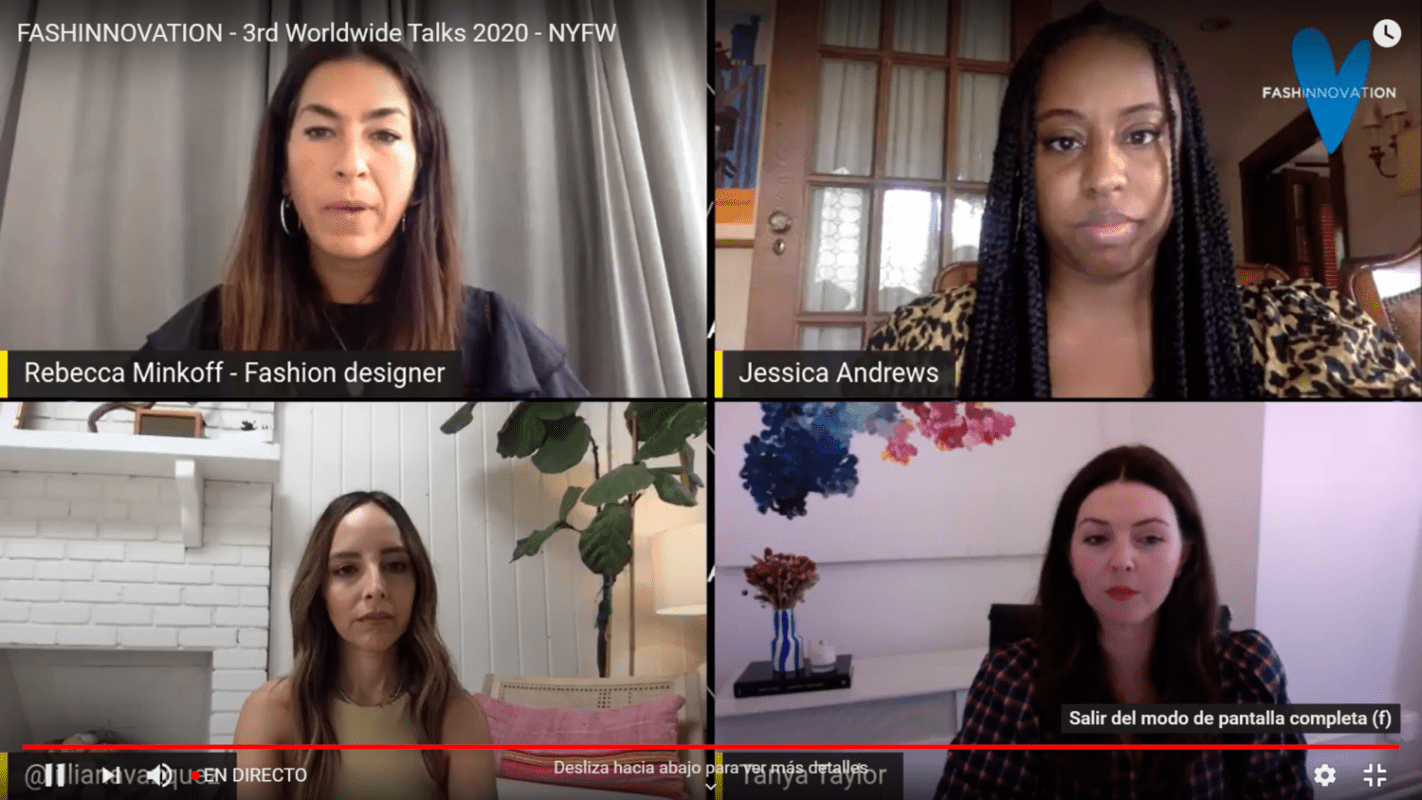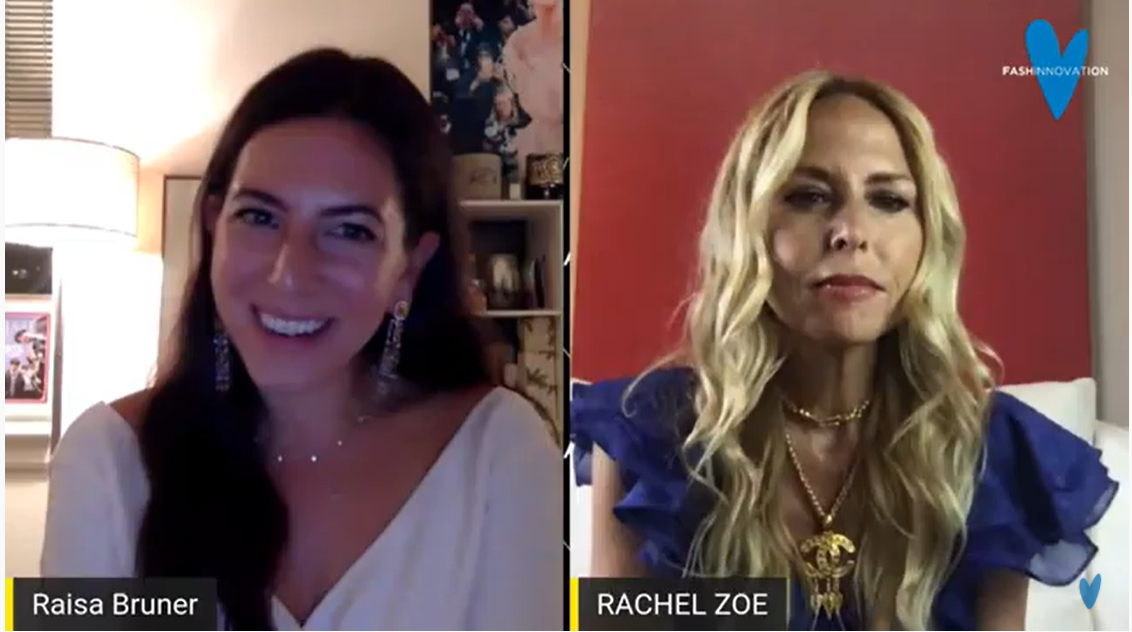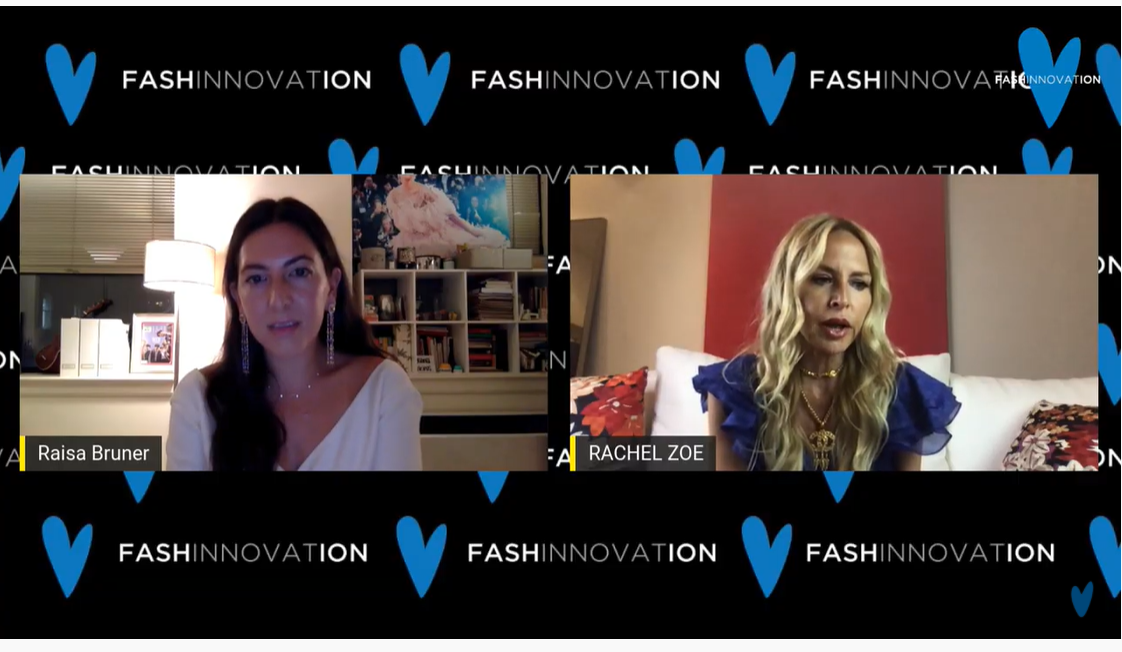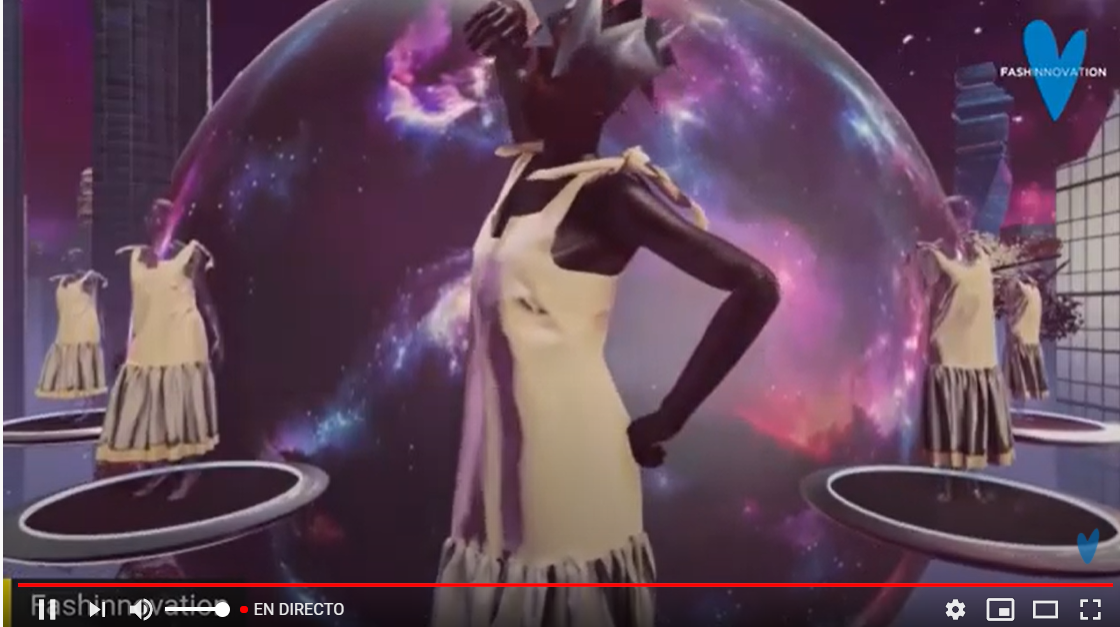The fashion industry, after having gone through a massive “shakedown” alongside the rest of the world, is pivoting to innovate towards the “next to normal”. September 10 was held online, the 3rd Fashinnovation Worldwide Talks, organized for Marcelo & Jordana Guimaraes and powered in partnership with the Conscious Fashion Campaign and collaboration with the United Nations Office for Partnerships – Fashinnovation brought global leaders in fashion, technology as well as cross over industries to discuss upcoming industry trends & more.
70+ speakers participated in the panel discussions & Fireside Chats as Rachel Zoe, Derek Blasberg (Head of Fashion, YouTube), Rebecca Minkoff, Abrima Erwiah (Studio One Eighty-Nine), Essence Gant (BuzzFeed), Mara Hoffman, Nigel Barker (Fashion Photographer), Richie Rich (BEAUTYKWEEN), Ngozi Okaro (Custom Collaborative), Katia Beauchamp (Birchbox), Oskar Metsavaht among others.
Panels were LIVE from China, India, Africa and there was a "Shark Tank" Competition for e-commerce brands to pitch to venture capitalists. The global fashion brand Rebecca Minkoff closed the virtual 3D Runway Show as part of FASHINNOVATION’s Worldwide Talks 2020 NYFW program.
Sustainability: A Larger Conversation
The panels on sustainability in the fashion industry at the 3rd Worldwide Talks all had an important message, which gets easily overlooked: Sustainability is not just about the environment. Sustainability in human rights, culture, art and design, and materials are factors under the impact of the fashion industry.
Human Rights, Diversity, and Inclusion
Sustainability is not just an environmental phenomenon, but also that of human rights. 2020 has been the year of the pandemic; however, it has also been the year of fighting for social justice, fighting against police brutality, and rekindling the Black Lives Matter movement. 2020 is a turning point. While people are trying to navigate the Covid-19 era’s ambiguity, the pandemic has also shown people that it was time to change the current systems. While many companies and brands in the fashion industry voiced solidarity on social media, the socio-political vocalism should turn into action to build the groundwork for change.
A change should stem from the within. Brands should restructure themselves and rebuild DEI policies to ensure BIPOC communities’ representation, generate opportunities for marginalized communities to decrease the gap, and create safe spaces.A change should stem from the outside. The consumer has the power to change the way brands operate. Awareness, transparency, and creating authentic connections with brands and community are driving forces of such change.
Craftsmen, Artisans, and Cultures
A broader conversation about sustainability is the economic welfare and the welfare of the people producing the items. In the intersection of environmental sustainability, artisans in countries such as Nigeria, Ghana, and India feel the effect of climate change more heavily than their Western consumers. In the panel “Fashion is Sustainability in Culture,” Morin Obaweya, CEO & Designer of Luxury Leather Brands at Morin.O, highlighted the need for technical expertise to carry indigenous craftsmanship to a global platform in African countries. As innovation flows into African countries, the social and economic lives of the women and youth working as craftsmen will scale up, thus contributing to social sustainability in the region.
Environmental Sustainability Through Fashion
3rd Worldwide Talks also re-emphasized the impact of the fashion industry on climate change. The fashion industry is responsible for 10% of the world’s carbon emissions — partially caused by the industry’s seasonality and partly by the materials used in traditional production methods. To limit the global temperature increase below 2 degrees Celsius, a goal set by the Paris Agreement, the fashion industry should rethink its operation. Sustainable design, chemicals used for materials and sourcing materials, seasonality, and consumer behavior patterns were under discussion at the panels, reiterating the importance of principles in work for a positive impact as people re-evaluate their relationship with the planet in the wake of Covid-19.
Empowerment and Identity Through Fashion
The fashion and beauty industries have been a space for self-expression of identities for people across the globe. Especially with the widespread use of social media, the platforms have become a place for individuals to get inspired, inspire, learn from a global perspective, and have their voices heard by others through easily sharing their content. Nigel Barker, a fashion photographer and judge on TV-hit America’s Next Top Model, emphasizes the changing roles due to social media. Editor, designers, and photographers, who were an indispensable decision-making mechanism for the traditional fashion industry, have been replaced by a public audience, who gained authority through social media.
Rethinking the Future in 2020
Especially in 2020, the year of the pandemic, social justice, and influential self-expressionism of the upcoming generation, people had the time to think about inclusivity in fashion and other areas of life. Kristen Bowen of White House Black Market sees the pandemic as an opportunity for women to get rid of rigid ideas of traditional power dressing and find inspiration on available platforms as the barrier between power and femininity disappears. Inclusivity in the industry fosters confidence and authenticity. Jordana Guimarães, the co-founder of Fashinnovation, emphasized the philosophy of Fashinnovation: Fashion is not exclusivity. Fashion is diversity; Fashion is inclusivity.
Fashion Industry: Digital Landscape
Covid-19 led brands, creatives, and consumers to explore the digital landscape of the fashion industry. With an abundance of content available, Youtube’s ease of sharing with a broad audience and high accessibility became a platform for exploring digital opportunities. From live fashion shows to subscription channels, Youtube cultivates an interconnected global network for the fashion industry members. While technology is opening technical opportunities for the brands within the industry, branding and storytelling still play a crucial role in the communication between the brand and its consumers.
Entrepreneurship, Branding, and Storytelling
During the panel “Fashion is Entrepreneurship via Branding and Storytelling,” Larry Gulko of Brand: New Way urged the audience to think about the effectiveness of being relatable to consumers and the role of creating stories that will resonate with them. Gulko’s questions “What are you really selling?” and “What was your most recent product launch, and why was it significant?” challenged the speakers to identify the paths of their branding strategies. In partnership with Bigthinx, this year’s FASHINNOVATION 3D Runway Show celebrated the theme of inclusivity, showcasing 11 brands from around the world - each selected for its dedication to diversity, inclusivity, and sustainable practices.
For more information https://fashinnovation.nyc/





